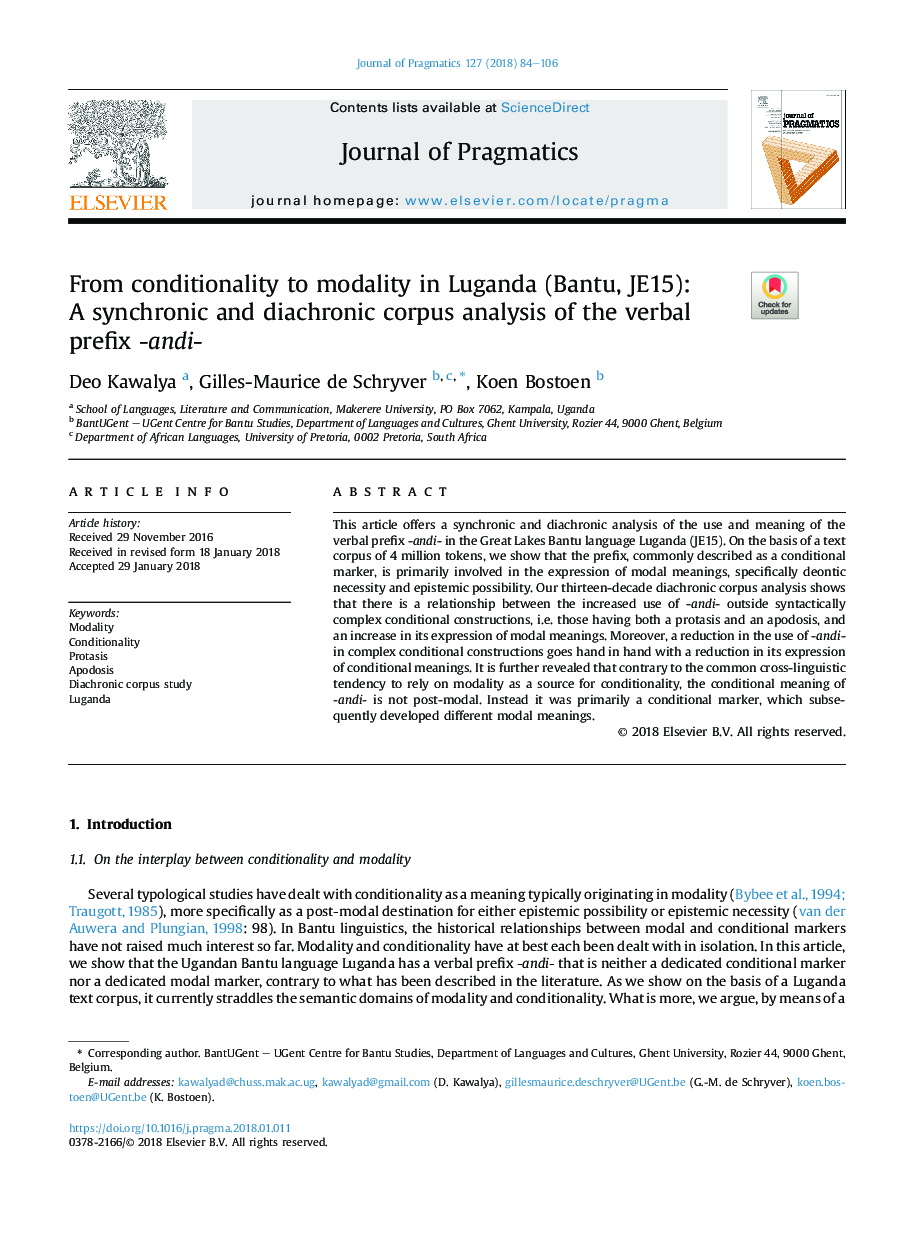| Article ID | Journal | Published Year | Pages | File Type |
|---|---|---|---|---|
| 7297458 | Journal of Pragmatics | 2018 | 23 Pages |
Abstract
This article offers a synchronic and diachronic analysis of the use and meaning of the verbal prefix -andi- in the Great Lakes Bantu language Luganda (JE15). On the basis of a text corpus of 4 million tokens, we show that the prefix, commonly described as a conditional marker, is primarily involved in the expression of modal meanings, specifically deontic necessity and epistemic possibility. Our thirteen-decade diachronic corpus analysis shows that there is a relationship between the increased use of -andi- outside syntactically complex conditional constructions, i.e. those having both a protasis and an apodosis, and an increase in its expression of modal meanings. Moreover, a reduction in the use of -andi- in complex conditional constructions goes hand in hand with a reduction in its expression of conditional meanings. It is further revealed that contrary to the common cross-linguistic tendency to rely on modality as a source for conditionality, the conditional meaning of -andi- is not post-modal. Instead it was primarily a conditional marker, which subsequently developed different modal meanings.
Keywords
Related Topics
Social Sciences and Humanities
Arts and Humanities
Language and Linguistics
Authors
Deo Kawalya, Gilles-Maurice de Schryver, Koen Bostoen,
